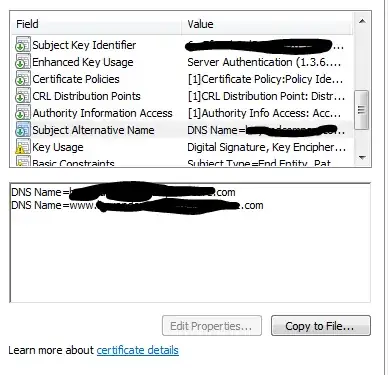I own example.com, example.net, and example.biz.
I use Apache to rewrite example.net and example.biz to example.com.
Based on this rewriting, it is my understanding that I would only need a certificate for example.com, and not example.net and example.biz. Please confirm.
I am using sub-directories and not sub-domains to structure my site.
The one exception is the www sub-domain.
If I want SSL for both example.com as well as www.example.com, do I need either two certificates or a wildcard certificate?
Would you recommend rewriting one of these domains to the other, and just using a single certificate? If so, which one would you recommend using, and why?
